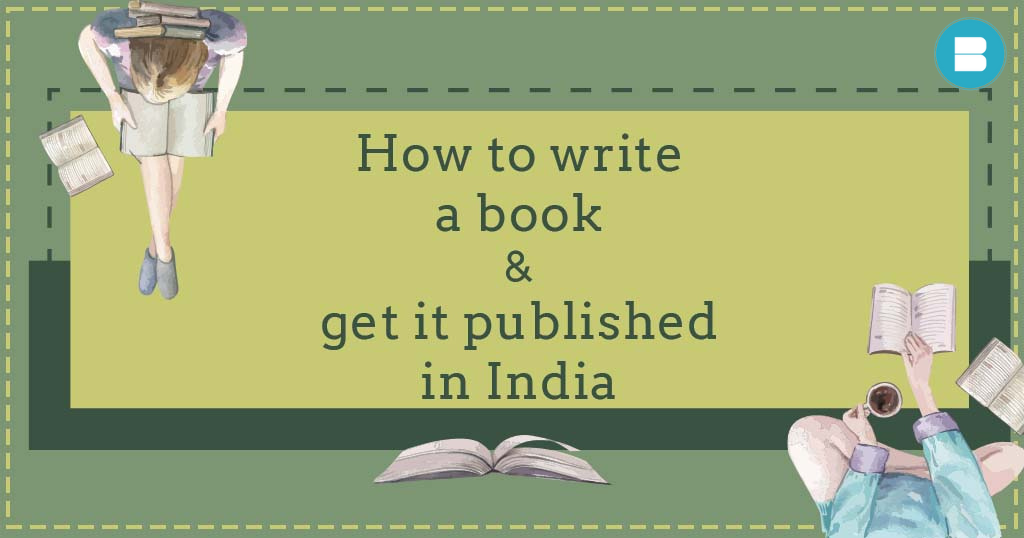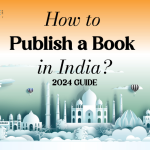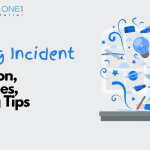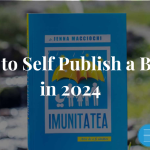Have you ever dreamed of becoming a published author and seeing your book on bookstore shelves? In today’s digital age, the process of writing and publishing a book has become more accessible than ever, especially in India, where the literary industry is flourishing.
Read: A Complete Guide on How to Write, Create & Publish a Novella
This step-by-step guide will take you through the journey of book publishing in India, whether you wish to self-publish or seek traditional publishing. We will cover the writing process, how to get your book published, and answer some common questions about book publication. Let’s get started!
Here’s a list of some steps tp keep in mind before writing & publishing a book in India:
- Writing Your Book
- Choosing a Publishing Route
- Preparing for Publication: Professional Editing
- Getting Your Book Published
- Marketing and Promotion
Step 1: Writing Your Book
The journey of writing a book is an exhilarating and transformative experience that begins with the inception of an idea or a spark of inspiration. As an aspiring author, the first and most crucial step in the book publishing journey is, of course, to write your book. However, for many writers, this initial step can be both exciting and daunting. Where do you begin? How do you stay motivated throughout the process? Let’s explore some essential tips to help you get started on your writing journey and maintain the drive to see it through to completion.
The foundation of any great book is a captivating and well-chosen topic. To begin, select a genre or subject matter that resonates deeply with you. Writing about something you are passionate about or have expertise in will not only make the process more enjoyable, but it will also infuse your writing with authenticity and depth. Whether it’s a fictional world you’ve been envisioning or a non-fictional subject that fascinates you, let your passion guide your writing.
With your topic in mind, it’s time to organise your thoughts and ideas. Creating an outline is a vital step in the writing process, as it serves as a roadmap for your book. It provides a structured framework that guides you through the chapters, plot points, or key arguments. An outline not only keeps your writing focused but also prevents you from getting lost or overwhelmed during the creative process. It allows you to see the bigger picture and identify potential gaps in your narrative.
To maintain momentum and stay on track, set writing goals for yourself. Establish daily or weekly targets to ensure a consistent writing practise. Having tangible goals to work towards keeps you motivated and helps you measure your progress. Whether it’s a word count or a specific number of pages, find a pace that works for you and suits your schedule. Celebrate each milestone achieved and use the satisfaction of meeting your goals as fuel for your writing journey.
Creating an ideal writing environment is essential to nurturing your creativity and concentration. Find a comfortable and distraction-free writing space where you can immerse yourself in your work. This could be a quiet corner of your home, a cosy café, or even a serene park. Eliminate distractions and surround yourself with items that inspire you, such as books, artwork, or motivational quotes. Having a dedicated writing space helps signal your brain that it’s time to dive into your creative process.
Once you’ve completed the first draught of your book, it’s time to step into the role of an editor. The process of revising and editing your manuscript is critical for refining your writing and enhancing clarity. Review your work multiple times, focusing on aspects such as plot consistency, character development, and overall flow. Be open to feedback, and don’t shy away from making significant changes if they serve the story’s greater purpose.
Step 2: Choosing a Publishing Route
Once you have a polished manuscript, it’s time to decide how you want to publish it. In India, you have two primary options:
- Traditional Publishing: Submit your manuscript to established publishing houses. If they find your book promising, they will offer you a publishing contract. Traditional publishing provides professional editing, marketing, and distribution support, but it can be a highly competitive and time-consuming process.
- Self-Publishing: Take control of the publishing process by self-publishing your book. Many platforms and services in India allow you to publish your book digitally or in print-on-demand format. Self-publishing gives you more creative freedom and quicker publication timelines.
Step 3: Preparing for Publication: Professional Editing
One of the most crucial steps in preparing your book for publication is investing in professional editing services. As a writer, it’s natural to become attached to your work, but having an objective and skilled editor review your manuscript is essential to ensuring that your book reaches its full potential.
A professional editor brings a fresh perspective to your writing, identifying areas that may need improvement, such as grammar and punctuation errors, inconsistencies in plot or character development, and clarity in your storytelling. Their expertise can transform your manuscript into a polished and refined piece of work that resonates with readers.
One of the primary goals of editing is to enhance the overall readability and flow of your book. A well-edited manuscript ensures that the language is clear, concise, and engaging, captivating readers from the first page to the last. By refining your prose, an editor helps you convey your ideas more effectively, creating a more immersive and enjoyable reading experience for your audience.
Additionally, professional editing ensures that your book adheres to the standards of the publishing industry. This not only reflects your commitment to delivering high-quality content but also increases the chances of your book being accepted by traditional publishing houses or receiving positive reviews from readers and critics.
While self-editing can be a valuable initial step, it’s essential to recognise that even the most skilled writers can overlook mistakes in their own work. An external editor brings an unbiased and experienced eye, catching errors and providing constructive feedback that you might have missed. They can also provide valuable insights into character development, plot coherence, and pacing, helping you refine your storytelling and create a more compelling narrative.
Remember that the editing process is collaborative and that the final decision on incorporating suggested changes remains with you, the author. Be open to feedback and trust that the editor’s intention is to elevate your work and bring out the best version of your book.
In conclusion, professional editing is an integral part of preparing your book for publication. It elevates the quality of your writing, ensures coherence and clarity, and enhances the overall reading experience for your audience. Embrace the editing process as an opportunity to refine your storytelling and present your book in its most polished form.
Preparing for Publication: Cover Design
An eye-catching book cover is a critical element in preparing your book for publication. As the saying goes, “Don’t judge a book by its cover,” but the reality is that readers often do. A well-designed cover not only captures attention but also conveys the essence of your story or subject, enticing potential readers to pick up your book and delve into its pages.
A compelling book cover acts as the first impression of your work, and in today’s visually oriented world, it plays a significant role in attracting potential readers in bookstores or online marketplaces. It serves as a visual representation of your book’s content, genre, and tone, making it essential to invest time and effort into its creation.
When designing your book cover, consider the following key elements:
- Visual Appeal: Use striking images or illustrations that evoke the theme or mood of your book. The cover should be visually appealing and instantly grab the reader’s attention.
- Title and Author’s Name: Ensure that the title and author’s name are legible and prominent. Choose fonts that complement the overall design and reflect the tone of your book.
- Genre Suitability: Tailor the cover design to match the genre of your book. For example, a thriller novel would have a different cover design than a romance or non-fiction book.
- Consistency: Create a cover that is consistent with the content and style of your book. It should accurately represent the story or subject matter without misleading readers.
- Branding: If you are an established author or have a series of books, consider incorporating consistent branding elements to create a recognisable identity for your work.
- Test Marketing: Before finalising your cover, conduct test marketing or gather feedback from your target audience to ensure that the design resonates with them.
In the case of traditional publishing, the publisher’s design team usually takes charge of creating the book cover. However, if you are self-publishing, you have the opportunity to collaborate with a professional cover designer or explore various online tools and platforms that offer customizable cover templates.
Keep in mind that your book cover is a powerful marketing tool, and investing in a captivating and well-designed cover can make a significant difference in attracting readers and generating interest in your book. With the right cover, your book will stand out on bookstore shelves and digital platforms, increasing its chances of success in the competitive publishing world.
Step 4: Getting Your Book Published
- Traditional Publishing: If you opt for traditional publishing, start by researching publishers that accept manuscripts in your genre. Follow their submission guidelines carefully and be prepared for potential rejections before finding the right fit.
- Self-Publishing: For self-publishing, choose a reputable platform or service that meets your publishing needs. Platforms like Kindle Direct Publishing (KDP) and BlueRose Publishers are popular choices in India.

Step 5: Marketing and Promotion: Building an Online Presence
In today’s digital age, building an online presence is an essential component of a successful book marketing and promotion strategy. An author’s online presence serves as a direct link between them and their readers, creating a platform for engagement, visibility, and brand building. Here are some key aspects of building an online presence as part of your book marketing:
- Author Website: A professional and user-friendly author website is the cornerstone of your online presence. It should showcase your book(s), provide information about you as an author, and include contact details and links to your social media profiles. Consider adding a blog to regularly share updates, behind-the-scenes insights, and writing tips to keep readers engaged.
- Social Media Platforms: Utilise popular social media platforms such as Facebook, Twitter, Instagram, and LinkedIn to connect with your target audience. Share engaging content related to your book, your writing process, events, and any book-related news. Social media allows for direct interaction with readers and helps you build a loyal following.
- Email Marketing: Collect email addresses from interested readers through your website or events and create a mailing list. Use email marketing to keep your subscribers informed about book releases, promotions, events, and exclusive offers. Regular newsletters can help you stay connected and nurture your reader community.
- Content Marketing: Establish yourself as an authority in your genre by sharing valuable content. This can include blog posts, articles, guest posts on other websites, and insightful videos. Content marketing not only attracts readers but also helps with search engine optimisation (SEO) to improve your online discoverability.
Marketing and Promotion: Book Launch
The book launch is a significant event in an author’s journey, marking the official introduction of their book to the world. Whether held in person or virtually, a well-organised book launch can create excitement and buzz around your book’s release. Here’s how to plan a successful book launch:
- Venue and Date: Choose a suitable venue, such as a bookstore, library, community centre, or online platform, for the book launch. Set a date that allows ample time for promotion and RSVPs.
- Invitations and Promotion: Send out invitations to friends, family, fellow authors, and potential readers. Utilise your online presence, mailing list, and local media to promote the event.
- Author Talk and Reading: Prepare a captivating author talk where you share your writing journey, inspirations, and insights about the book. Conduct a reading from your book to enthral the audience.
- Book Signing: Offer a book signing session where attendees can get personalised copies of your book. Signed books make for cherished keepsakes and encourage word-of-mouth recommendations.
- Book Display and Merchandise: Display copies of your book prominently at the venue. Consider creating branded merchandise like bookmarks, posters, or postcards to give away as souvenirs.
- Media Coverage: Invite local media and bloggers to cover the event. Press coverage can significantly boost your book’s visibility and attract potential readers.
- Virtual Book Launch: In the digital era, virtual book launches have gained popularity. Conduct a live online event through platforms like Zoom or Facebook Live, allowing readers from around the world to participate.
Marketing and Promotion: Book Reviews
Book reviews play a crucial role in promoting a book and influencing potential readers’ decision-making. Positive reviews lend credibility to your work, increase visibility, and encourage more people to consider reading it. Here’s how to approach book bloggers and reviewers for reviews:
- Research Reviewers: Identify book bloggers, online reviewers, and media outlets that review books in your genre. Look for reviewers with a significant following or those who have reviewed books similar to yours.
- Personalise Your Pitch: When reaching out to reviewers, personalise your pitch. Mention why you believe your book would resonate with their audience and acknowledge their previous reviews.
- Provide Review Copies: Offer complimentary copies of your book to reviewers in the format they prefer, whether physical copies or e-books. Ensure that your book is professionally edited and formatted.
- Be Patient and grateful. Reviewers receive numerous requests, so be patient while waiting for their response. Express gratitude to reviewers who agree to review your book, whether the review is positive or critical.
- Share Reviews: Once reviews start coming in, share them on your website, social media, and promotional materials. Positive reviews act as social proof, instilling confidence in potential readers.
Remember that not all reviews will be positive, and that’s okay. Constructive criticism can help you grow as a writer and refine future works. Embrace feedback as a valuable learning experience.
Marketing and Promotion: Collaboration with Local Bookstores, Libraries, and Literary Events
Collaborating with local bookstores, libraries, and literary events is an effective way to showcase your book to a broader audience and foster community engagement. Here’s how you can leverage these partnerships to promote your book:
- Bookstore Events: Approach local bookstores to arrange book signings, author talks, or book launch events. Bookstore events allow you to connect directly with potential readers and boost book sales.
- Bookstore Displays: Request that bookstores feature your book prominently on their shelves or in their window displays. Eye-catching placements can attract passersby and generate interest in your book.
- Library Readings: Reach out to local libraries to organise readings and discussions about your book. Libraries often host literary events that attract book enthusiasts and provide a platform for authors to engage with their audience.
- Literary Festivals and Conferences: Participate in regional or national literary festivals and conferences. These events offer opportunities to connect with fellow authors, industry professionals, and avid readers.
- Book Clubs: Approach local book clubs and offer to attend their meetings as a guest author. Book clubs are ideal for in-depth discussions about your book and can lead to word-of-mouth recommendations.
- Community Events: Engage with community events, book fairs, and literary gatherings to network with potential readers and fellow authors. Participating in such events can expand your reach within the local literary community.
Collaboration with these institutions and events not only enhances your book’s visibility but also strengthens your author brand. It fosters a sense of trust and credibility among readers as your book gains recognition in literary circles and among fellow authors.
Marketing and Promotion: Virtual Book Tours
Virtual book tours have emerged as a popular and cost-effective way for authors to connect with readers globally. In a virtual book tour, authors visit various online platforms to engage in interviews, discussions, and promotional events. Here’s how you can plan a successful virtual book tour:
- Identify Tour Stops: Approach book bloggers, podcast hosts, online book clubs, and literary websites to arrange virtual tour stops. Look for platforms with an audience that aligns with your book’s genre and theme.
- Schedule Events: Plan a schedule for your virtual tour, spreading out events over a specific period, such as a week or a month. Coordinate with the hosts to determine suitable dates and times for each event.
- Diversify Content: Offer a mix of content during the tour, including author interviews, live Q&A sessions, readings, and discussions about the book’s themes.
- Engage with the Audience: During each virtual tour event, actively engage with the audience. Respond to comments, answer questions, and express gratitude for the participants’ support.
- Cross-Promotion: Collaborate with the hosts to cross-promote the virtual tour. Share event details on your social media, website, and mailing list, and encourage hosts to do the same.
- Follow Up: After each virtual tour stop, follow up with a thank-you note to the host and participants. Continue engaging with new readers and potential followers on your social media and mailing list.
Virtual book tours offer several benefits, including the ability to reach a wide audience without the need for physical travel. They also provide the opportunity to connect with readers who might not have attended in-person events. By diversifying your tour content and engaging with the audience, you can make a lasting impression and cultivate a loyal reader community.
In conclusion, marketing and promotion are vital aspects of an author’s journey to success. Building an online presence, hosting a well-organised book launch, obtaining book reviews, collaborating with local bookstores and libraries, and engaging in virtual book tours are effective strategies to increase your book’s visibility, connect with readers, and establish yourself as a prominent author in the literary world. A combination of these efforts, along with passion, perseverance, and creativity, can help you navigate the competitive publishing landscape and achieve your book’s full potential
FAQs on How to Get a Book Published in India.
Submitting your manuscript to traditional publishers or opting for self-publishing are the common routes to getting your first book published. Research publishers, follow submission guidelines, and consider hiring professional services for self-publishing.
The difficulty of publishing a book varies depending on the publishing route you choose and the level of competition. Traditional publishing can be challenging due to the high number of submissions, while self-publishing provides more accessibility to publication.
Authors can earn royalties from book sales after publishing. For traditionally published authors, royalties are typically a percentage of the book’s sale price, while self-published authors retain a higher percentage of royalties.
Self-publishing costs can vary based on the services you choose, such as editing, cover design, and marketing. Traditional publishing does not require upfront costs, but authors may receive smaller advances or royalties.
In conclusion, writing and publishing a book in India can be an exciting and rewarding journey. With determination, creativity, and the right approach, you can see your book in the hands of eager readers. Embrace the process, leverage digital tools and platforms, and share your unique story with the world.
Publish your book for free with BlueRoseONE and become a bestselling author. Don’t let your dream of becoming an author fade away, grab the opportunity now and publish your book – be it fiction, non fiction, poetry or more.
Happy writing and publishing!
















